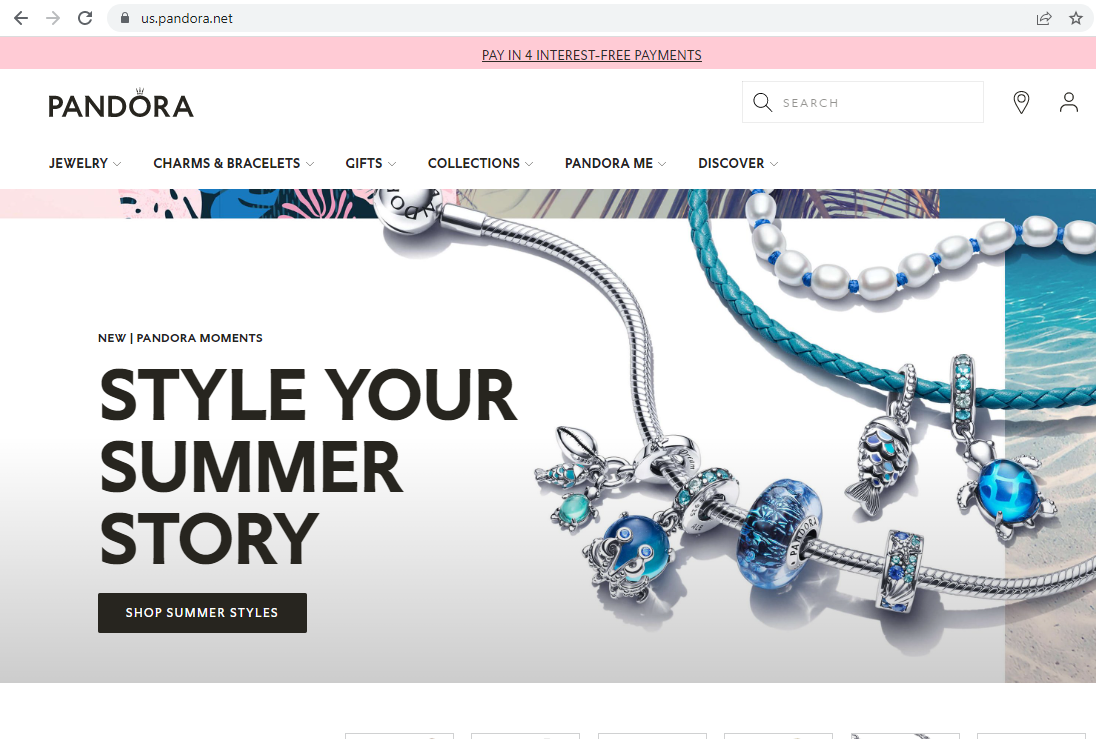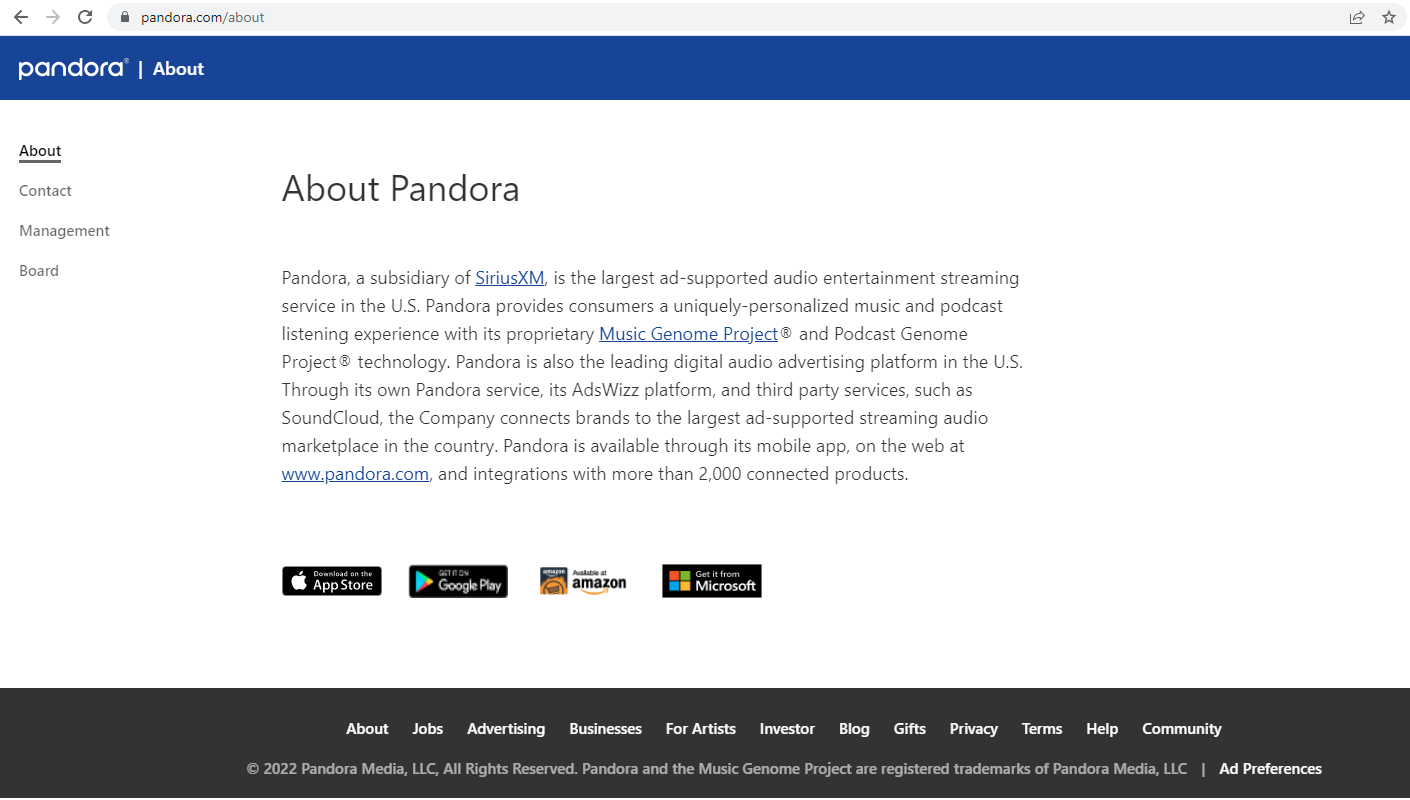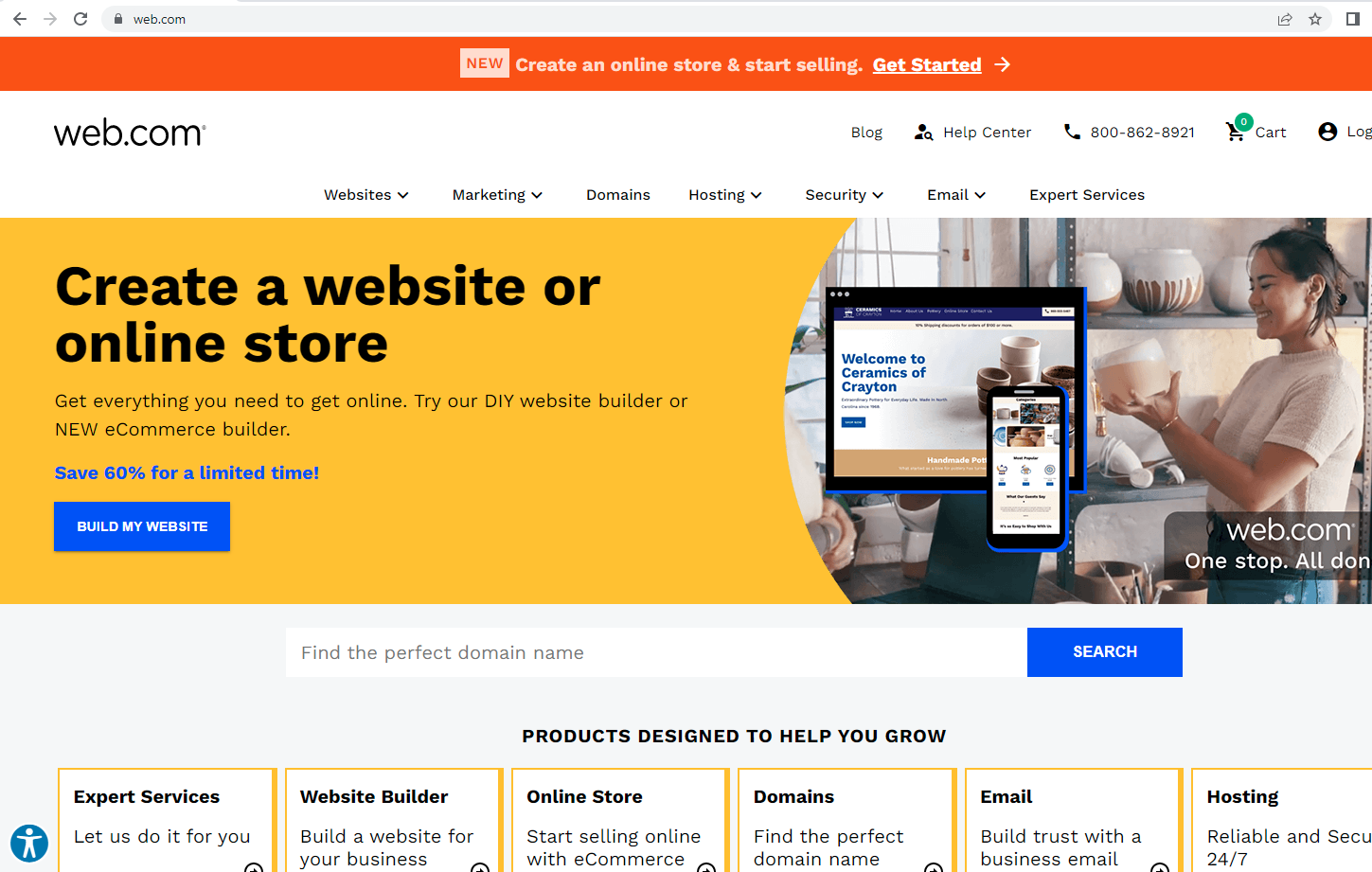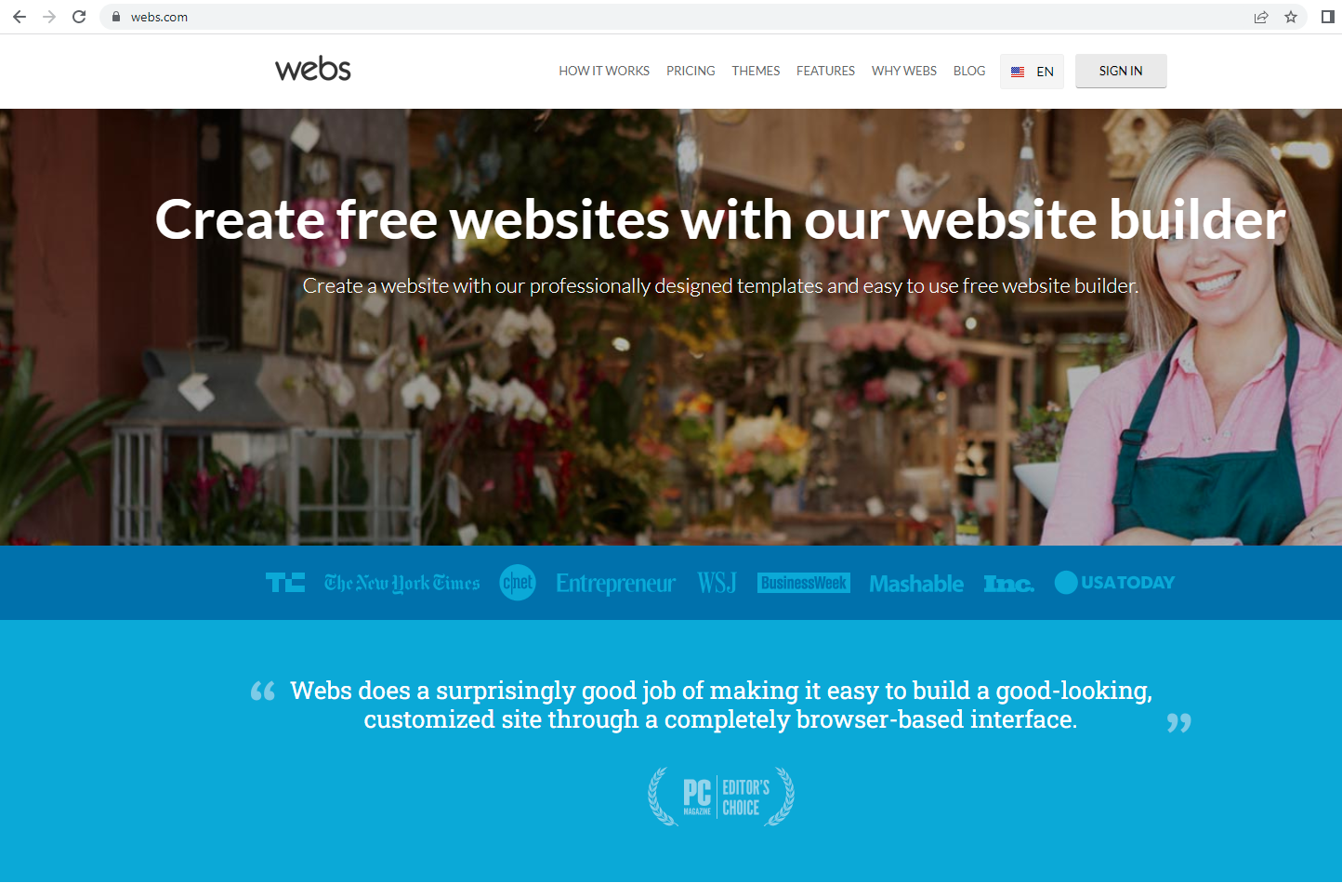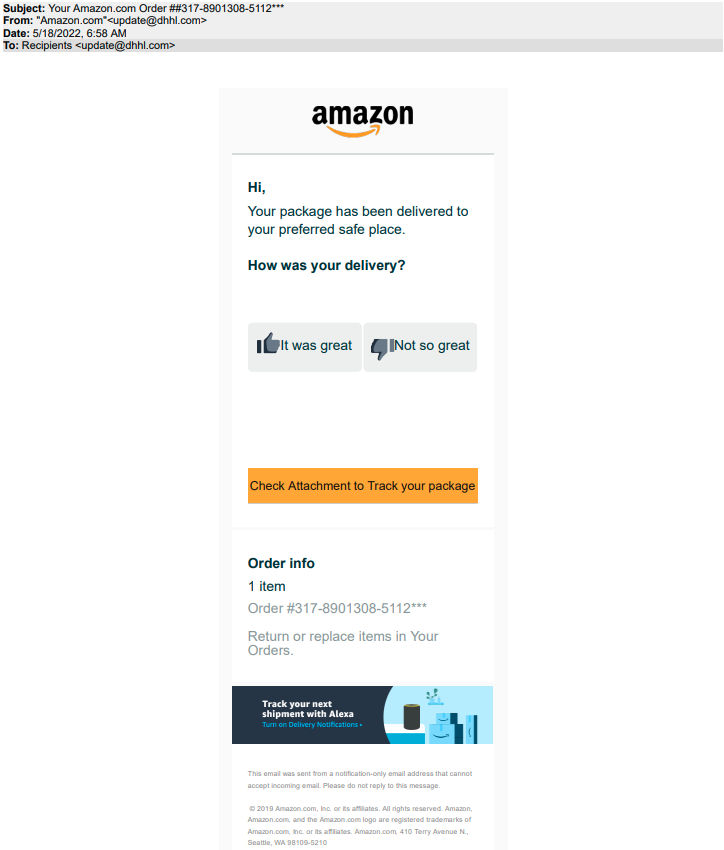Why Should You Register Variables of Your Domain?
As a website owner, you may have come across advice telling you to purchase as many relevant variables of your domain as possible, but the importance of doing so might not be easily understood. In this blog post, I’ll be discussing the importance and risks associated with registering varying domain names and domain extensions.
In this blog post, we’ll be covering:
Fully Owning a Website Name
Different Ownership, Different Content
A great example of this issue is found in the website addresses pandora.com and pandora.net, with the latter address belonging to the jewelry company while the former belongs to an American music streaming service. Because both of these website addresses belong to different established entities, entering the same domain name but using a different domain extension brings you to two completely different websites with entirely different content.
Ensuring Accessibility
Having issues with ownership over variables of your domain name can create a variety of problems that you and your business will face. Without full control over your business’s name, you’ll worry about how clients will view your brand when they, for example, type your website address with the wrong domain extension due to their faulty memory and end up on a website not controlled by you but sharing a very similar domain name. From clients accidentally diverting themselves onto a different website than yours that belongs to a competitor, to malicious representations of your brand existing to confuse or deceive your clients, owning variables of your domain is vital to minimizing problems of brand integrity and client relations that you might encounter. Owning variables of your domain ensures that no matter how your clients try to access your website, they’ll still be able to arrive safely at your website to show your business the love it deserves!
Issues can arise when two websites have very similar domain names to each other with the same domain extension. An example of this can be found in the website addresses web.com and webs.com, which are two very similar website addresses owned by competing website builder and web hosting companies. These very similar addresses can easily be confused for one another’s, and both addresses could easily be taking customers from their direct competitor, the other website. This scenario is certainly not one you’d like to recreate with your own website address.
Website Traffic and Business
In today’s age, website traffic is vital for website owners who wish to attract the interest and business of online clients.
Reaching You is Key
Considering how internet access is now worldwide, different people from different regions will want to reach your website, but people coming to your website from different regions means there will be different approaches to spelling your website address if there are any regional spelling variations in its words, such as for words like “favourite” which can alternatively be spelled as “favorite”, or the word “travelling” which can alternatively be spelled as “traveling”. If your website address contains words with alternate regional spellings, it would be smart to register the alternate spellings of your address under your name, so that no matter where your visitors come from, they’ll always be able to reach your website.
Diverting Interest and Impressions
Along with ensuring your clients aren’t diverted away from what you have to offer, holding control over all variables of your domain ensures that what clients see and connect to your business are under your control and don’t give potential clients undesirable impressions. First impressions are everything for websites, which only have between 0.2 and 2.6 seconds to make a first impression on its visitors.
Loss of Clients and Transactions
Imagine a scenario where a potential client was recommended your business for the first time through one of their friends, who was very pleased by their experience with you. This potential client now has interest in visiting your website to read about your services and complete transactions with you through your website. Unluckily, due to the fact that people correctly remember a website domain extension only 44% of the time, this potential client enters the wrong website extension and ends up on a website not owned by you, but instead owned by someone else who uses their website to redirect visitors to distasteful and inappropriate content. Confused, this potential client immediately stops their search for your actual website and instead goes to find a competitor of yours, a different business that offers the same services as you do.
Due to this instance of different people owning the same domain name with different domain extensions, a potential client who’d initially had great interest in doing business with you is repelled from your business to instead seek out a competitor’s services. The same issue of accidental diversion can arise when different people own extremely similar domain names with the same extension. Such issues represent a short-term loss in a client and their business. Additionally, potential clients now have a negative impression of you and your business, as they associate the distasteful website they ended up on with your legitimate business. This means they will likely refuse to seek out your business to give their patronage to in the future, a long-term loss of a would-be satisfied client. From examples like this, we can see how not owning variable domain extensions can have impacts on your business, both in the short-term and long-term.
Safety and Security Concerns
Malicious Imitation
Those in ownership of a domain variable to your website’s address could imitate your business’s website, including all of its different informative pages and offered services or products, and use this deception to scam or otherwise deceive your diverted clients into, for example, purportedly purchasing services from “you” that your legitimate business never actually delivers on. This example represents two threats to you and your business, as not only are genuine clients’ money being taken by a malicious impersonator, but the fact that you don’t deliver on these services or products purchased from “you” could seriously hurt your business’s integrity, as clients would believe that you and your legitimate business have intentionally failed to fulfill transactions with clients. Due to the fact that there is little to nothing you can do to change how a website owned by someone else presents itself, you might find that situations like this have no simple solutions for you to preserve your business’s integrity in the eyes of clients.
Malware and Redirection
Another threat that owners of extension variables of your domain name could pose is that they could exploit the similarity of their website address to yours to expose your would-be visitors and clients to malicious content. This threat would target anybody who is searching for your website but happens to forget the correct domain extension of your site, or makes a typo and enters the wrong domain name by accident. This exposure can happen in a variety of ways; for example, these variations of your website address could immediately expose visitors to spam pop-ups and malware in efforts to harm them or their devices.
Similarly, these websites could work to channel traffic from your website to other sites by immediately redirecting visitors to sites filled with spam and sources of malware, or to sites featuring illicit and inappropriate content. Beyond directly owning these domain variations of your website address to have them under your control, there isn’t much you can do to prevent these sites from existing and posing a threat to your would-be visitors and clients.
With website addresses come domain emails, and with domain emails come all the dangers related to deceptive spam and phishing emails. Malware, spam, pop-ups, and other attempts on you or your clients’ safety don’t just exist on websites, but through emails too. Impersonators of your website could register a domain email using their extremely similar website address to yours to, for example, contact your clients to phish for their personal information, or attempt to scam them into sending money to the malicious email sender. Below is a great example of how dangers related to impersonator emails can manifest: a phishing email recreating a legitimate email about an Amazon package prompts you to click a link which undoubtedly has malicious intent against its recipients. Pay close attention to the domain email and how easy it is to overlook its misspelling of “dhl.com”.
How to Best Protect Your Site
With extension variables under your control, you can also ensure that clients aren’t diverted to competitors or undesirable sites when looking for your website. There isn’t much you can do to combat diversions and threats to you, your business, and your visitors once a site’s ownership and purposes are established. That’s why registering variables is important to consider as early as possible, in order to prevent issues before they’re set in place and become a growing concern.
What Should I Do When I First Register My Website?
As a general tip, the majority of domain registrars will list out the domain extensions that are available for registering when you enter your desired domain name and begin searching. Some registrars even offer suggestions for other similar domain names based on misspellings or alternative word choices, so that you can consider registering them alongside your original website address and ensure would-be visitors always find their way to you. This information can immediately inform you about what variables you can register in your name, and also what variables to keep an eye on, so that times when others’ ownership of them isn’t renewed are opportunities for you to gain control and peace of mind over your website name by registering those variables yourself and redirecting visitors to your website.
How Should I Register My Domains?
From my experience, I’d recommend a domain name registration service like Doteasy’s for its efficiency and convenience, and for being able to register ownership for every domain name and extension you’d want in one place. I’ve found that Doteasy in particular offers a domain name registration deal where, for $8.50 a year, you’re able to register unlimited varying domain names and extensions under your name.
Other domain name registration services charge you individually for every domain registered under your name: even if the first domain name is offered to you at only $1, consequent domain name registration will charge you at full price for much more than that, adding up to be a very large amount of money you’ll need to pay every year to protect your website and clients’ safety.
A deal like Doteasy’s will save you a lot of money in the long run, where a massive amount of money spent with another domain name registration service is cut down to only $8.50 a year. If you’re interested in protecting your business’s website from impersonators and other malicious intentions, this is a deal you’ll definitely want to consider. Alongside this deal is another offering I’ve found that they have, in which their web hosting plans are discounted by up to 65% and come with free domain registration regardless of the pricing you choose. If you’re looking to start and host a site, now’s a great time to hop onto their services while these deals are active.
As a last bit of advice, it’s better to buy variables of your website address now and feel peace of mind knowing your website visitors and clients will always safely find their way to your website, rather than feel regret and insecurity once you find out variables of your domain have been purchased by others and are now being used to cause trouble for you and your visitors. For concerns surrounding domain variables, prevention before problems appear is key, which is why serious consideration should be given to registering all the variables that you should at your earliest opportunity.

